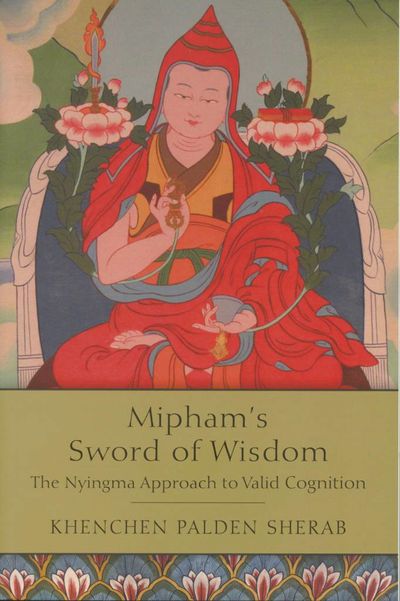- Translator's Introduction vii
- The Sword of Wisdom that Ascertains Reality by Jamgön Mipham1
- The Radiant Light of the Sun and Moon by Khenchen Palden Sherab17
- 1. Prelude: Preliminary Verses of Homage 19
- 2. The Validity of the Teachings and Teacher 25
- 3. The Two Truths 39
- 4. An Explanation of Causality through Interdependent Appearances 43
- 5. Overview ofthe Four Reasonings and the Reasonings of Causal
Efficacy and Dependency 51
- 6. The Six Causes, Five Effects, and Four Conditions 63
- 7. The Reasoning of the Nature 75
- 8. Valid Cognition 81
- 9. Direct Perception 87
- 10. The Reasoning of a Valid Proof: Inference Based on Evidence 101
- 11. Correct Signs and False Signs 109
- 12. The Ways Inference Is Presented 113
- 13. Conventional and Ultimate Valid Cognition 119
- 14. The Four Reliances 141
- 15. The Definitive Meaning: The Eight Intentions 153
- 16. The Definitive Meaning in the Vajrayana 161
- 17. Rely on Wisdom to Reach the Eight Great Treasures 171
- 18. Conclusion 181
- Appendix A. Jamgon Mipham's Annotated Verses: The Sword of Wisdom That
Ascertains Reality 191
- Appendix B. Outline of Jamgon Mipham's Verses 217
- Appendix C. Outline of Khenchen Palden Sherab's Commentary 219
- Notes 229
- Glossary of Sanskrit and Tibetan Terms 259
- Bibliography 263
- Sources Cited in the Commentary 265
- Index 269
- About the Author 295
Mipham's Sword of Wisdom explores the Nyingma-lineage understanding of valid cognition in Vajrayana Buddhism. This translation, a clear and concise primer on higher realization through valid cognition in Buddhist philosophy, presents these ideas in English for the very first time and includes the sutra presentation of the two truths and the tantra teachings of the two truths as the purity and equality of all phenomena.
(Source: back cover)
Inferential valid cognition comes down to valid direct perception, and valid direct perception comes down to the valid self-aware direct perception, which clearly experiences the mind itself as its object. Therefore all the classifications in the world of what is true and what is false would have no logical basis without self-awareness on the relative level.
~ in Mipham's Sword of Wisdom, page(s) 100
We should understand that the refutation of self-awareness in the Madhyamaka treatises uses reasoning on the absolute level only to refute self-awareness's true existence. Madhyamaka philosophy does not refute self-awareness on the relative level.
~ in Mipham's Sword of Wisdom, page(s) 100



